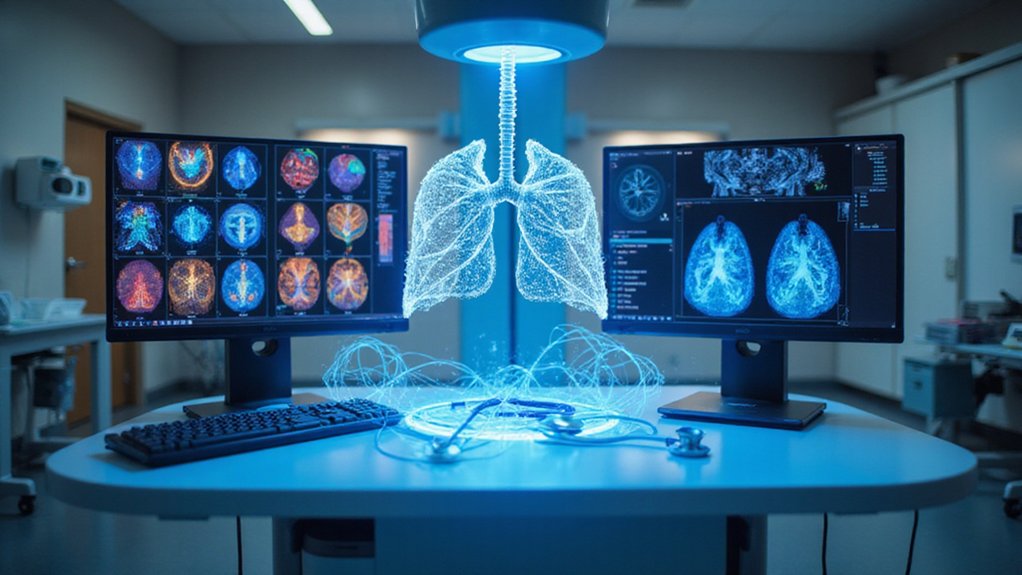While most industries cautiously dip their toes into AI waters, healthcare has cannonballed straight into the deep end. The numbers are staggering. Eight out of ten hospitals are already using AI. The market hit $32 billion this year and analysts predict it’ll balloon to over $400 billion by 2032. That’s not gradual adoption. That’s a stampede.
Young people are driving this charge. Over half of AI healthcare users are between 18 and 24. They trust machines to diagnose their symptoms and schedule their appointments. Meanwhile, three-quarters of healthcare organizations pumped up their IT budgets specifically for AI projects. Money talks, and right now it’s screaming “artificial intelligence.”
But here’s where things get messy. Healthcare executives are drunk on generative AI promises. Ninety-five percent think it’ll transform medicine. Yet most projects are stuck in proof-of-concept purgatory. They call it “pilotitis” – AI experiments that never graduate to real-world use. Sounds about right. Nearly half of U.S. healthcare organizations remain in early implementation stages, suggesting the gap between vision and execution remains vast.
The problems pile up fast. AI models hallucinate, spitting out confident-sounding medical nonsense. Doctors don’t trust them. Can you blame them? Regulatory frameworks are basically nonexistent. Legal risks lurk everywhere. Data privacy concerns haunt every implementation. And the costs? Through the roof.
Still, healthcare plows forward. Virtual assistants handle patient triage. Algorithms interpret lab results. Administrative tasks get automated left and right. Revenue cycle management, claims processing, scheduling – all increasingly run by machines. Ambient listening technology reduces documentation burdens by capturing clinical conversations in real time. Urban hospitals lead the charge while rural facilities lag behind, creating a digital divide in patient care.
Urban hospitals race ahead with AI while rural facilities struggle to keep pace
The disconnect is jarring. Front-line medical researchers watch nervously as their field transforms at breakneck speed. They see the promise – precision medicine, predictive analytics, streamlined workflows. They also see the pitfalls – accuracy issues, ethical dilemmas, security vulnerabilities. The NHS’s Foresight system utilizing 57 million records exemplifies this accelerating trend toward national-scale AI implementations.
Healthcare organizations show “increased risk tolerance” for 2025. Translation: they’re betting big on unproven technology. The market analysts cheer. Medical researchers hold their breath. Patients? They’re along for the ride, whether they realize it or not. The AI healthcare transformation isn’t coming. It’s here, ready or not.
References
- https://healthtechmagazine.net/article/2025/01/overview-2025-ai-trends-healthcare
- https://docus.ai/blog/ai-healthcare-statistics
- https://www.blueprism.com/resources/blog/ai-in-healthcare-statistics/
- https://www.bain.com/insights/the-healthcare-ai-adoption-index/
- https://www.healthcare.digital/single-post/key-learnings-from-the-healthcare-ai-adoption-index-2025









